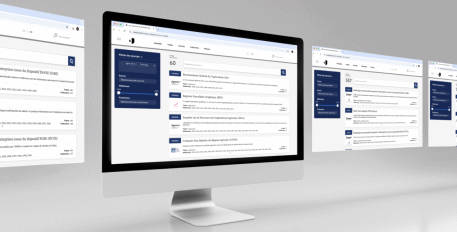When CASD was created within INSEE, it was requested that this new secure system allow access from European Union and EFTA countries to the data that the Institute entrusted to it for research. Since then, this is the case for most of the sources in the CASD catalog and their use by French or foreign researchers from universities or research institutions in these countries has grown steadily. Requests to send an SD-Box to one of these foreign institutions represented, in 2022, more than 20% of the total number of SD-Box requests, with more than a hundred in use over the year, in strong growth compared to the previous year.
While three countries, Germany, Italy and the United Kingdom (thanks to the decision to adapt the latter after BREXIT) account for nearly 70% of these uses, demand is expanding to new countries every year. These accesses, which are also used extensively by French researchers working abroad, also facilitate cooperation between institutions on both sides of the border for work carried out on French data or for research using data from several countries.
In this regard, it should be noted that the German administrative data on employment at IAB and those available at CASD constitute a very rich resource (see the joint report on the comparability of these data) for collaborations and responses to the ANR (Agence Nationale de la Recherche) / DFG (Deutsche Forschungsgemeinschaft) call for projects. The use of these data is facilitated within the framework of the IDAN network (International Data Access Network) by the reciprocal accessibility from the Safe Rooms of the partner centers in Germany (Nuremberg, Cologne and Mannheim) and at the CASD in France (see the CASD website for more information on IDAN and on the access to the CASD Safe Room)
The CASD is thus well placed to be fully involved in the European Data Strategy, which, with its various regulations that have been enacted (RGPD), are being implemented (DGA) or are still under discussion (DA), should eventually promote transnational access to confidential data in the European area.






